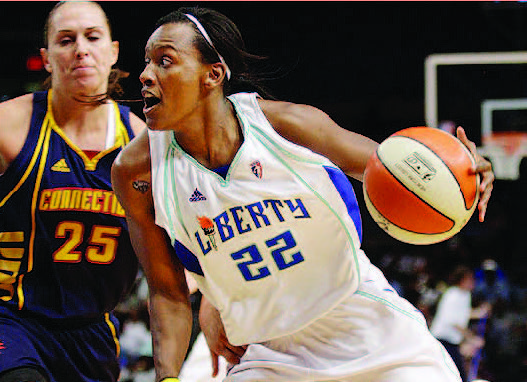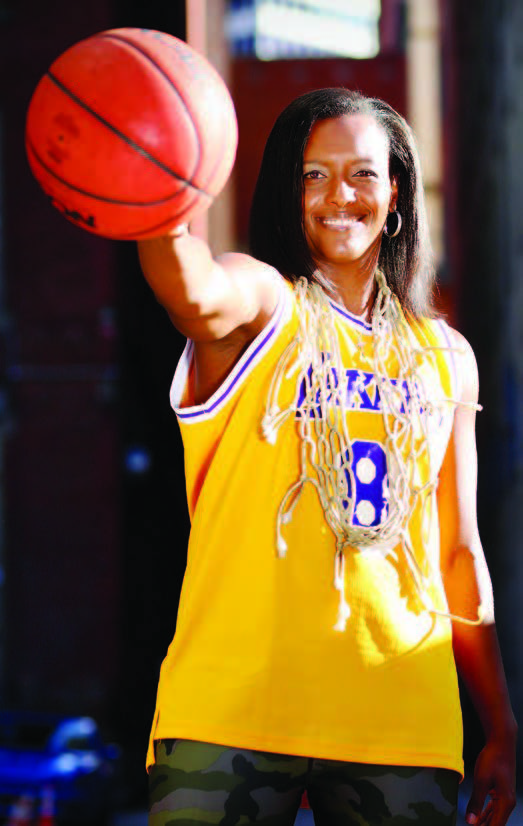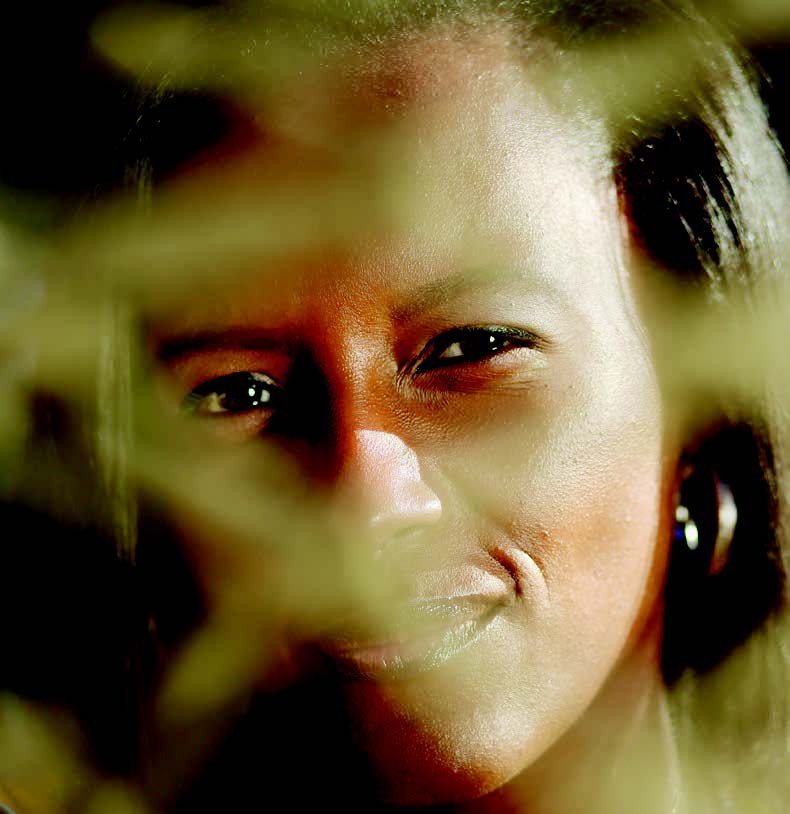by Rob Taylor Jr.
Courier Staff Writer
Professional athletes are fully aware that their basketball, football, baseball or hockey careers can’t last forever.
COURIER
EXCLUSIVE
After retirement, some athletes go into coaching, such as Bill Cowher, the former Pittsburgh Steelers head coach. Cowher played five seasons in the NFL before getting into coaching, eventually becoming Steelers head coach in 1992 and winning Super Bowl XL after the 2005 season.
Aliquippa’s own Tony Dorsett, a Hall of Fame running back with the Dallas Cowboys, enjoyed a successful stint in the business world after his playing days ended in 1988.
Michael Jordan is widely regarded as the greatest basketball player of all-time, but even he wanted to accomplish more after retirement. He went on to become the NBA’s second-ever Black majority owner of a franchise, the Charlotte Hornets.

ASHLEY BATTLE grew up in Manchester, on the North Side. She won three national championships at the University of Connecticut, then had a six-year career in the WNBA. She now is making inroads at Nike as an associate product line manager. (Photo by Emmai Alaquiva)
Ashley Battle used her intellect, passion and determination to succeed on the court during a six-year career in the WNBA and overseas. She’s used the same attributes to craft a substantive career after retiring from the game in 2011 due to a number of injuries.
Battle became an associate product line manager for Nike’s “Jordan Brand” entity in September 2020. Once the coronavirus pandemic is controlled, she told the New Pittsburgh Courier she’ll be moving to Portland, Oregon, to work at Nike headquarters. But for now, she works remotely, from Pittsburgh.
That’s right, Pittsburgh, where it all began for Battle.
The Manchester neighborhood is where Battle was born and raised, attending Manchester Elementary School, and for middle school, she attended Frick. Battle had the gift of basketball early on, playing for the Western Pennsylvania Bruins AAU team at age 12. Her team ended up winning the national championship that year, and by the time she reached the seventh grade, Battle received her first letter of recruitment to play college ball at William & Mary, a university in Virginia.
For high school, Battle made the decision to play for The Linsly School, a private boarding school in Wheeling, W.Va. There, she recalls “breaking every record known to mankind,” becoming a must-see attraction each time she hit the court.
The 6-foot Battle said she was recruited by pretty much “every school except North Carolina and Tennessee.” She narrowed her final choices for collegiate play to Connecticut and Penn State. In November 1999 as a high school senior, Battle ultimately chose Connecticut (UCONN), the school that had come into prominence as a women’s college basketball powerhouse after winning the 1995 national championship. The university also was the home of Swin Cash, the mighty McKeesport basketball star who had been on the UCONN team for a full year before Battle signed.
At UCONN, Battle and the Huskies flourished with a capital “F.” Not only had the team won its second national championship in 2000 right before Battle arrived on campus, but UCONN won three straight national titles from 2002-2004, Battle right there on the court playing either shooting guard or small forward for the Huskies, basking in the team’s glory.

ASHLEY BATTLE won three titles at UCONN.
During her sophomore season in 2003, she was named the Big East Defensive Player of the Year and had earned the reputation of being one of the best defensive players in the country.
Battle wasn’t sure she would be drafted in the WNBA after her UCONN days were over in 2005. That label of Battle being a “defensive player” seemed to scare some WNBA teams away, but Battle had a good WNBA draft combine, and she indeed was drafted, No. 25 overall, to the Seattle Storm.
Being cut, and the comeback
The Women’s National Basketball Association in 2005 had names that are considered WNBA legends today—Sheryl Swoopes of the Houston Comets; Chamique Holdsclaw of the Los Angeles Sparks; Diana Taurasi, Battle’s former teammate at UCONN, who played with the WNBA’s Phoenix Mercury; Tamika Catchings of the Indiana Fever; and Lisa Leslie of the Sparks.
Battle had been selected to play for the Storm, who made a thunderous bang the season prior, winning the 2004 WNBA Championship over the Connecticut Sun. Battle was joining a team loaded with talent, including Finals MVP Betty Lennox, Lauren Jackson and former UCONN standout Sue Bird.
The Storm also had a legendary head coach, Anne Donovan, who, by winning the 2004 WNBA title, became the first woman to win a WNBA championship as a head coach. Van Chancellor won as head coach of the Comets for the first four WNBA Championships (1997-2000), Michael Cooper won the next two WNBA titles as head coach of the Sparks (2001-2002), and Bill Laimbeer won the 2003 WNBA title as head coach of the Detroit Shock.
Battle recalls playing during the preseason games with the Storm her rookie season, but when the regular season began, she rarely saw the court. She appeared in two regular season games, and right before the All-Star break in July 2005, Donovan informed Battle that she had been cut from the team.
“I thanked her (Donovan) for the opportunity, and I left,” Battle told the Courier.
Battle returned to Pittsburgh during that stressful month of July 2005, on the outside of the WNBA.
But she was determined to get back in.
She didn’t need her mother, Deborah Blackwell Battle, to give her any inspirational vitamins. Deborah Battle, according to daughter, Ashley, had given her buckets of advice on life early on in her basketball career, dating back to Manchester Elementary School, when she was outplaying the boys on the basketball court there. Ashley Battle said her mother always allowed her to make her own decisions—about going to The Linsly School, or UCONN—“She never once tried to sway me one way or another because this was the life I had to live,” Ashley Battle told the Courier.
During this period of reflection in Pittsburgh in 2005, mom and other family members “didn’t have to say anything,” Ashley Battle recalled. “I was very determined to make a team and play in the WNBA. I already knew what I had to do, I knew what was needed of me, I knew what I needed to do to get better.”
Battle headed overseas to play basketball, and feverishly worked on her shot, her one-on-one skills, and soon showed the doubters that she was more than just a defensive player. “It’s crazy because I scored more than 1,000 points at UCONN,” Battle said.

ASHLEY BATTLE, during her playing days as a member of the WNBA’s New York Liberty. (AP Photo)
In 2006, Battle was back in. This time, she was headed to The Big Apple, New York City, where she would play with the WNBA’s New York Liberty for the next four seasons. She played in all but one of the team’s 34 games in 2006, averaging 14 minutes, 4.3 points and 1.9 rebounds per game. Her next season, 2007, was her best in the WNBA. She played in all 34 games, upped her minutes to 22.3 per game, and upped her points per game to 7.4 with nearly 4 rebounds per contest. Battle was a steady, tenacious player for the Liberty, appearing in all the team’s games the following two years (2008, 2009), averaging about 4.5 points and 2.1 rebounds per game.
In 2010, Battle played for the San Antonio Silver Stars, where she played in five regular season games and the playoffs, but she also was hindered by injuries. A sciatic nerve issue with pain shooting down her leg, along with torn ligaments in her ankle, left Battle to discontinue playing after the 2010 season.

ASHLEY BATTLE (Photo by Emmai Alaquiva)
A new career(s)
After a collegiate career in which Ashley Battle played in nearly 150 games, scored more than 1,050 points, snared nearly 700 rebounds, and won three national championships; and a WNBA career that included more than 150 games played, nearly 750 points scored, more than 350 rebounds collected, and three playoff appearances, what was next?
The bank.
Literally, the bank, as in Fifth-Third Bank, which operated branches in Pittsburgh as far back as a decade ago. Battle began working at Fifth-Third, eventually running her own branch on the North Side. As she performed those duties, she became head coach of the Chartiers Valley High School girls basketball team in May 2013.
A few years later, she landed back in Connecticut, this time as the director of new business development at Barnum Financial Group, a financial planning and consulting services company. The connections she made in these various positions landed her into the business side of the NBA, where Battle helped female international players with aspirations to play in the U.S. in the WNBA or collegiately. (Although the WNBA has its own commissioner, the WNBA was started by and is owned by the NBA.)
This past summer, Battle became one of the members of the second cohort of the “Women In Nike” two-year program, a partnership between the WNBA and Nike which provides dynamic work experience for retired or retiring WNBA players, while building the next generation of talent at Nike.
Battle was hired to work on Nike’s “Jordan” brand as an associate product line manager. A typical workday currently involves managing the process of sneaker development in the kids and women’s divisions for the “Jordan 23 Engineered” line. She must be on top of the latest fashion trends, then steer the shoe designers to build the shoe and the corresponding color waves “that we think will work well for consumers,” Battle, 38, told the Courier.
Anyone who’s into sneakers knows that if a shoe doesn’t have the right colors, blended the right way, and isn’t in style, it just won’t sell. No one will want to rock them. With a brand as legendary as Jordan, it’s gotta be right. It’s what people have come to expect from the brand.
That’s why, Battle said, she works on shoes that are going to be released, say, in the fall of 2022, or on a holiday in 2023. “So in a typical day, I don’t know what year it is,” she joked.
When the pandemic clears, Battle will leave Pittsburgh and head to Portland, the site of Nike’s headquarters. Who knows…she could be at Nike for a “very long time,” she said. Her ultimate goal is to be part of the front office of a basketball team, such as a general manager. But for now, “I’m enjoying what I’m doing thus far,” Battle, the Pittsburgh native, told the Courier, “and I feel like there’s a lot of growth in the different categories that I’m in. It gives me the opportunity to grow a brand and grow the women’s platform better than what it is currently.”

ASHLEY BATTLE attended Manchester Elementary School and Frick Middle School, in Pittsburgh, and The Linsly School, in Wheeling W.V.a., for high school. (Photo by Emmai Alaquiva)
Pittsburgh adores its sports heroes. They say that Western Pennsylvania is more known for its football than its basketball. But for the Ashley Battles, the Tanisha Wrights, the Swin Cashes, the Shatori Walker-Kimbroughs and other African American female basketball legends from the Pittsburgh area, there’s no greater sport.
During an interview at the WNBA’s Inspiring Women Luncheon in 2018, Battle said she hopes her journey from Manchester, to earning a bachelor’s degree from UCONN, to playing professional basketball, and now succeeding in the corporate world, inspires young women. “Just really showing them that people from the inner-city can make it,” Battle said, “and showing them that there’s a way, there’s an opportunity. Take care of yourself, do your work and be diligent, and make smart decisions.”

ASHLEY BATTLE (Photo by Emmai Alaquiva)